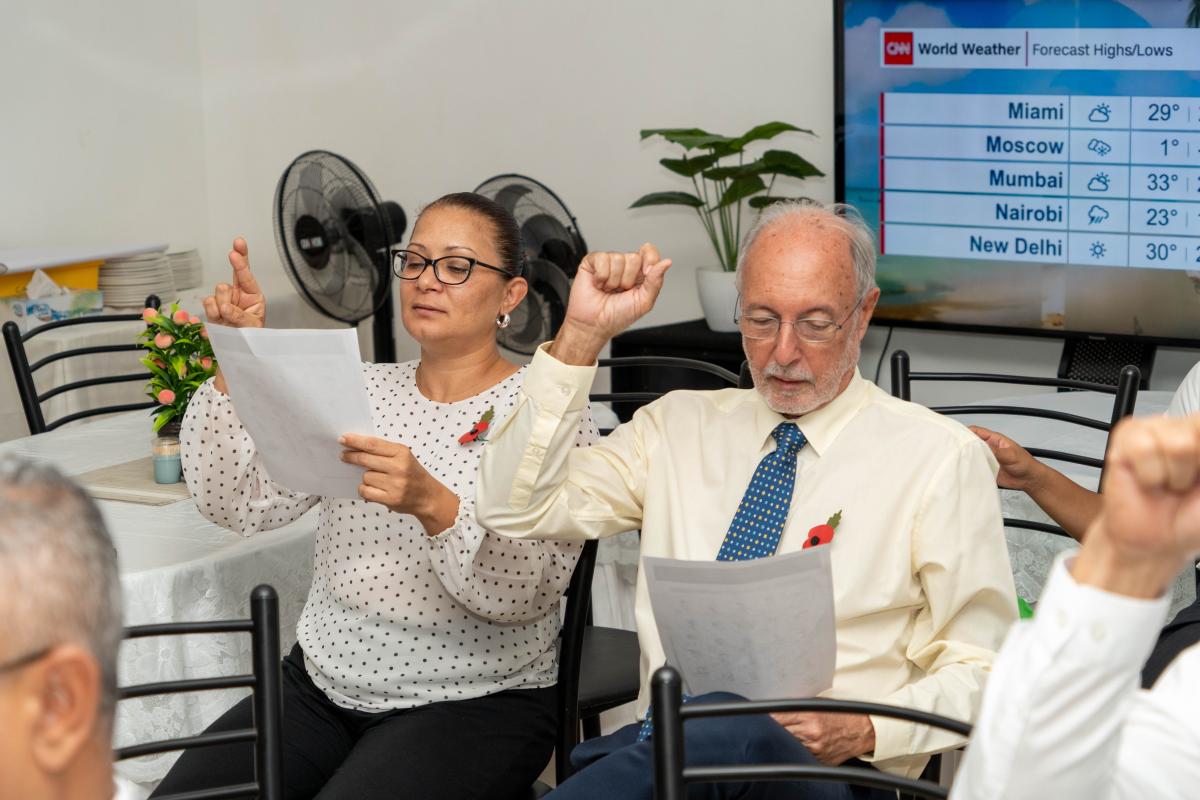The last of the series of Sign Language classes hosted this year at the National Assembly came to a close on Tuesday 10th December 2024, with various Honourable Members and members of the Project Focal Group in attendance. These classes, funded as part of the Deaf Cultured and Inclusive Parliament Project through the Commonwealth Parliamentary Association (CPA), served as an entry to the intricacies and nuances of sign language and the Deaf Community in Seychelles. Members had the opportunity to reflect on the Deaf population, the challenges they experience, the gaps in legislation, and the ways in which learning Lalang Siny Seselwa (LSS) can help foster more engagement with their legislative system and representatives.
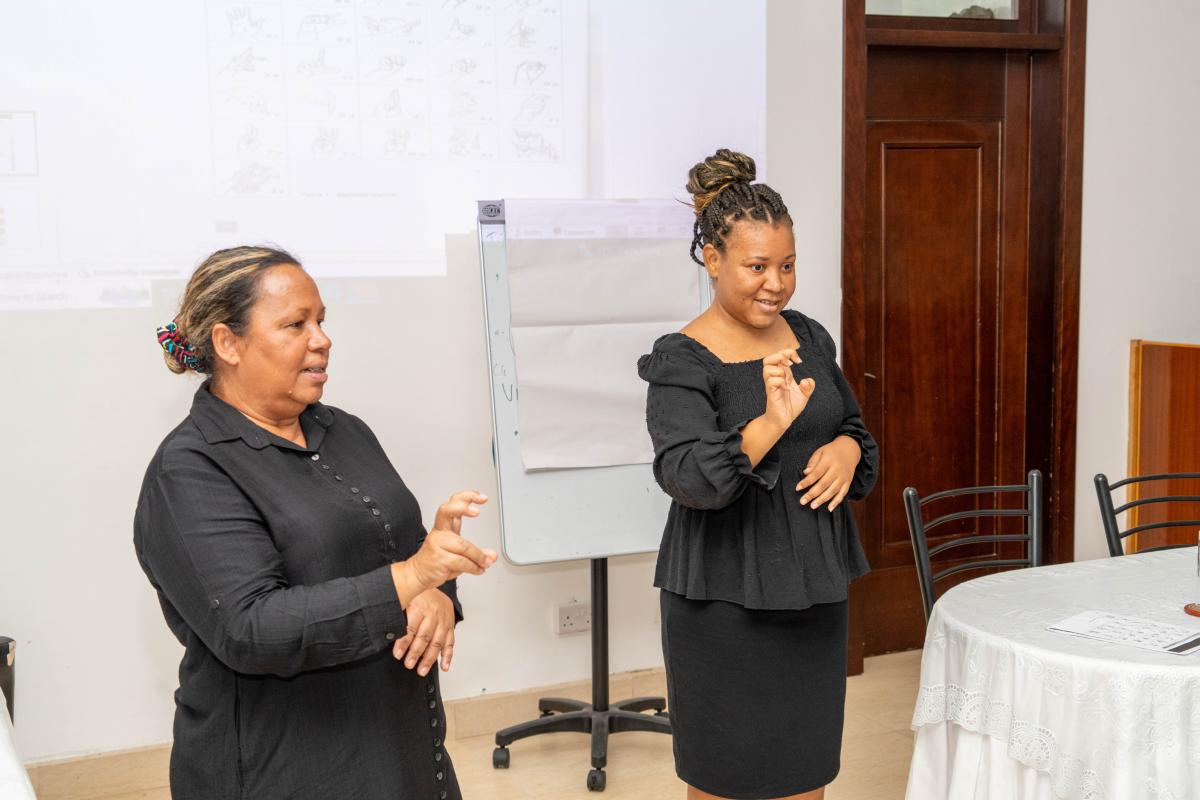
During the classes, attending MNAs were educated on the essential skills of sign language such as hand movements and shapes, facing the correct direction, and ensuring their signing was clear at all times. Ms. Anita Gardner remarked that learning LSS is something that should be undertaken by everyone, as it serves to create a truly inclusive society where all Seychellois can interact and understand one another. To enhance their ongoing learning experience, Members were encouraged to film themselves signing a phrase or their names, to display their progress and aid them in correcting any mistakes. Hon. Audrey Vidot, a dedicated learner, stated that she is “more vigilant and confident in myself now that I have learned the basics of signing. I feel more comfortable and more at ease in relating with members of the Deaf Community, as I have learned how to be patient and how to adapt my communication”.
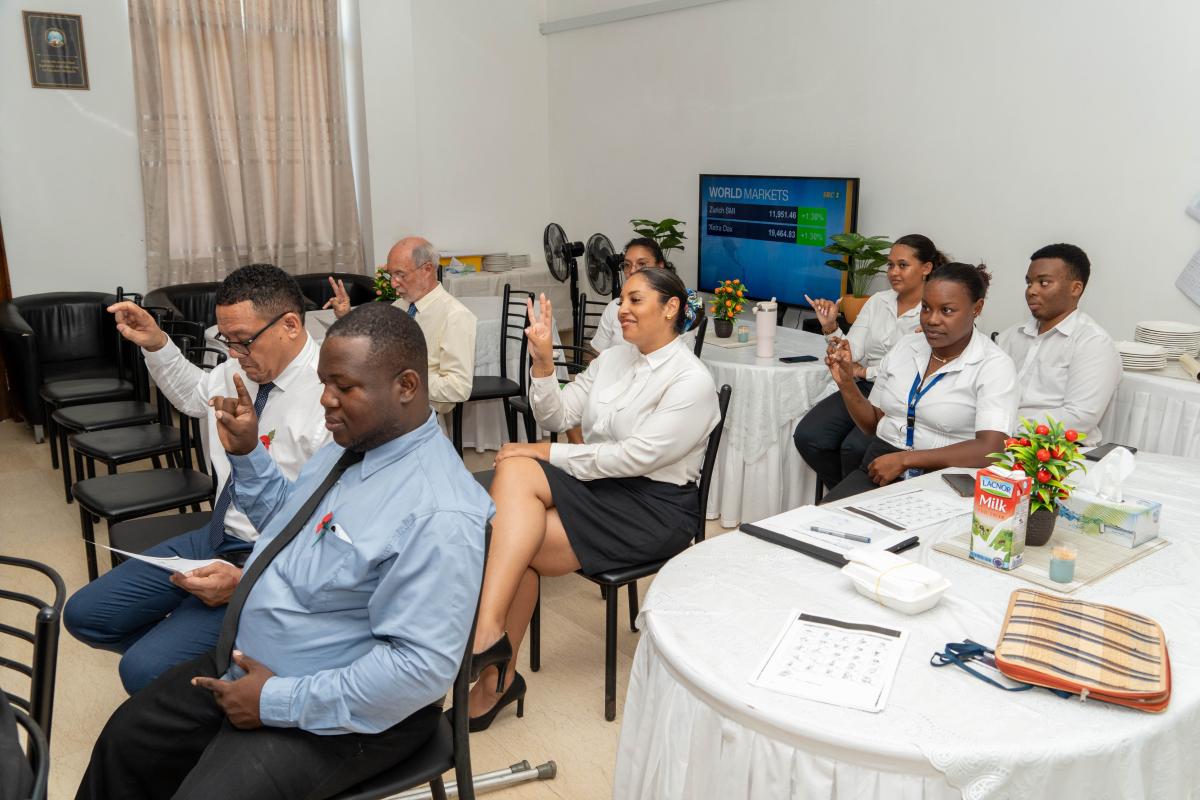
It was emphasized that LSS should be treated as a standard language, with Ms. Gardner explaining that even regional differences and dialects can exist within a nation’s sign language. A strong call for the formalization of LSS into legislation was made, in order for the Deaf Community to have the empowerment to request the provision of services such as sign language interpreters in spaces that are currently non-inclusive. Access to information is one of the main goals of the Association for People with Hearing Impairments (APHI), as the Deaf Community deserves the right to make informed decisions of their own volition. Another consistent attendee of the classes, Hon. Sylvanne Lemiel, gave the following testimonial: “It has been a wonderful journey, and I have really enjoyed the sessions although I am not yet fluent! I find myself really relating with members of the Deaf Community, and I am waiting for more classes to be organised so that I may participate again.”
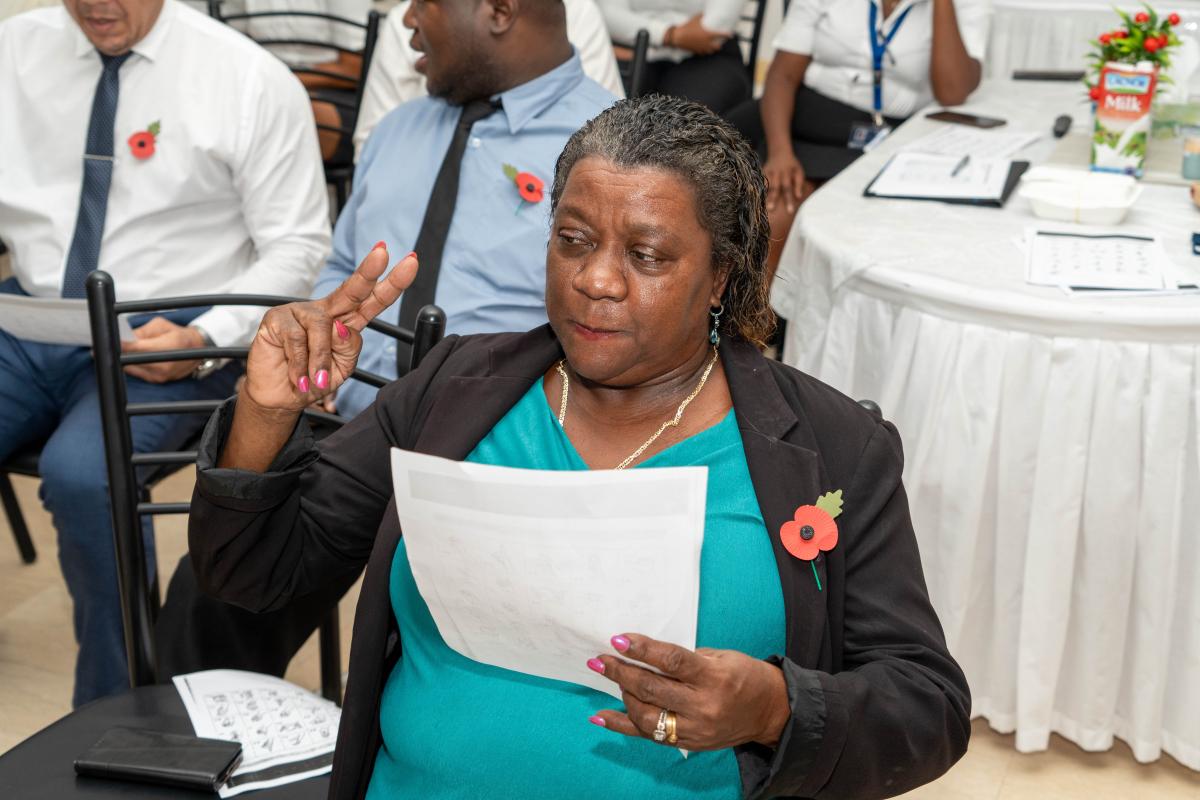
As this segment of the Deaf Cultured and Inclusive Parliament Project has now concluded, the members of the Project Focal Group extend their heartfelt thanks to Ms. Anita Gardner and the Association for People with Hearing Impairment for the facilitation of classes and resources, as well as their steadfast dedication in promoting the rights of the Deaf Community in Seychelles. Accessibility and inclusivity are principles which upheld in the National Assembly, and this project has served to highlight the ways in which Members and National Assembly Service Staff embody these values wholeheartedly.
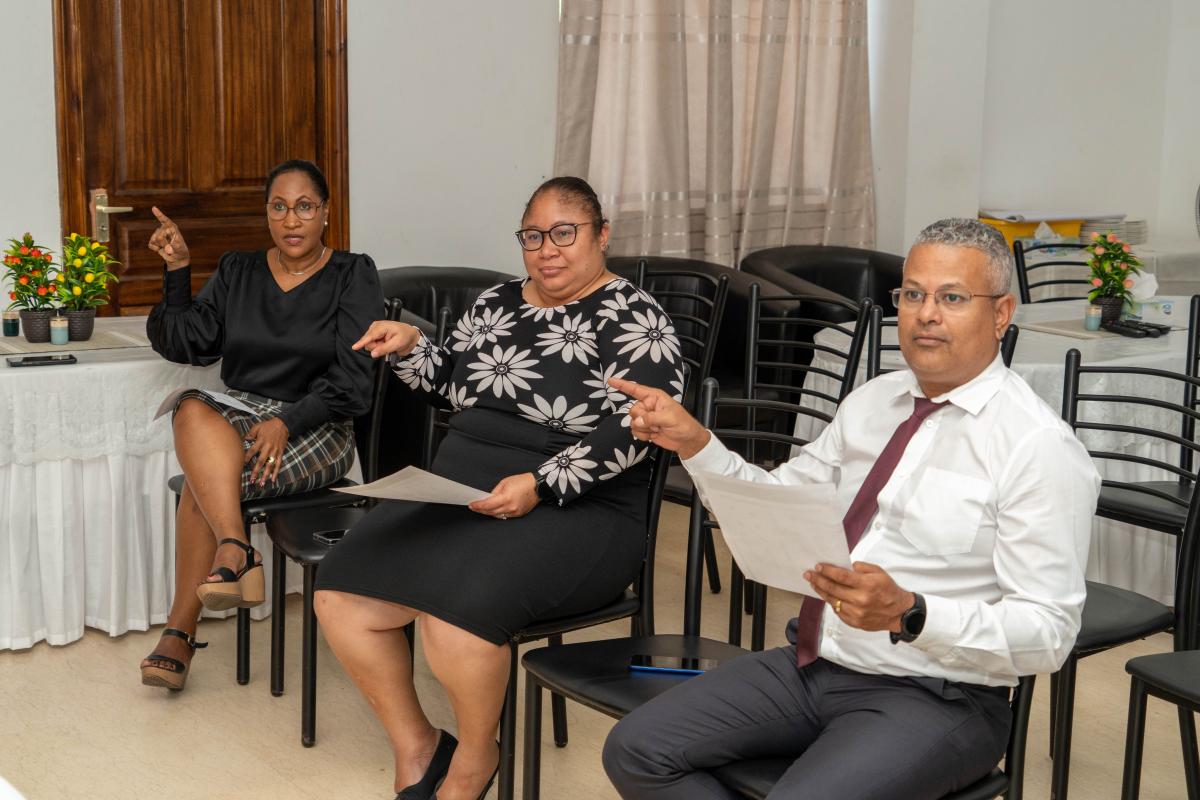
The team also expresses its gratitude to the CPA for their generous funding through the Commonwealth Parliamentarians with Disabilities (CPwD) Fund, and the unwavering support and steadfast commitment to the promotion of this project. Deputy Clerk, and head of the Focal Group, Ms. Alexandria Faure emphasised that “we are deeply grateful to CPA for receiving the grant. It has made a positive impact on the engagement between our Parliament and the deaf community of Seychelles. Despite this project coming to an end, the commitment of the NAS to engaging with the deaf community and to become more inclusive will remain strongly consistent and integrated in our strategies going forward.”
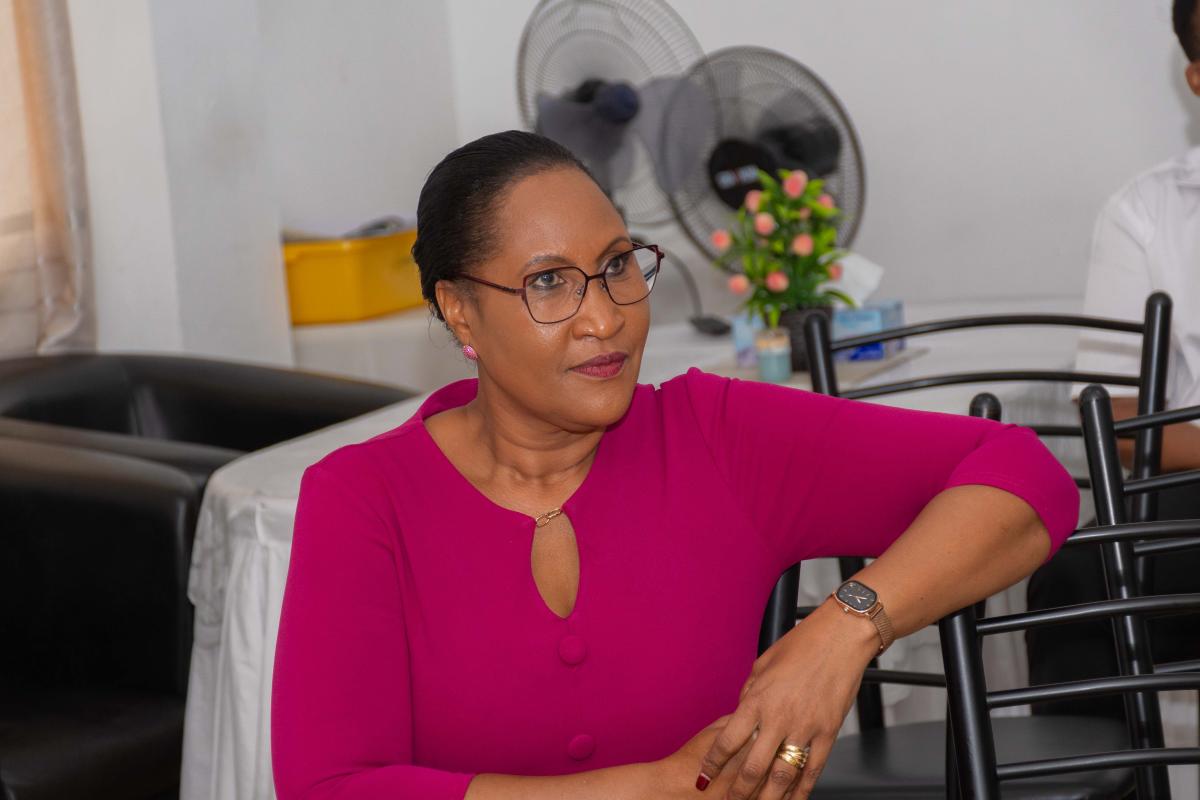
This journey has been a truly positive and fruitful experience, highlighting the power of collaboration in advancing inclusivity. The National Assembly eagerly anticipates future opportunities to collaborate, building on shared values and strengthening our collective impact on society.
